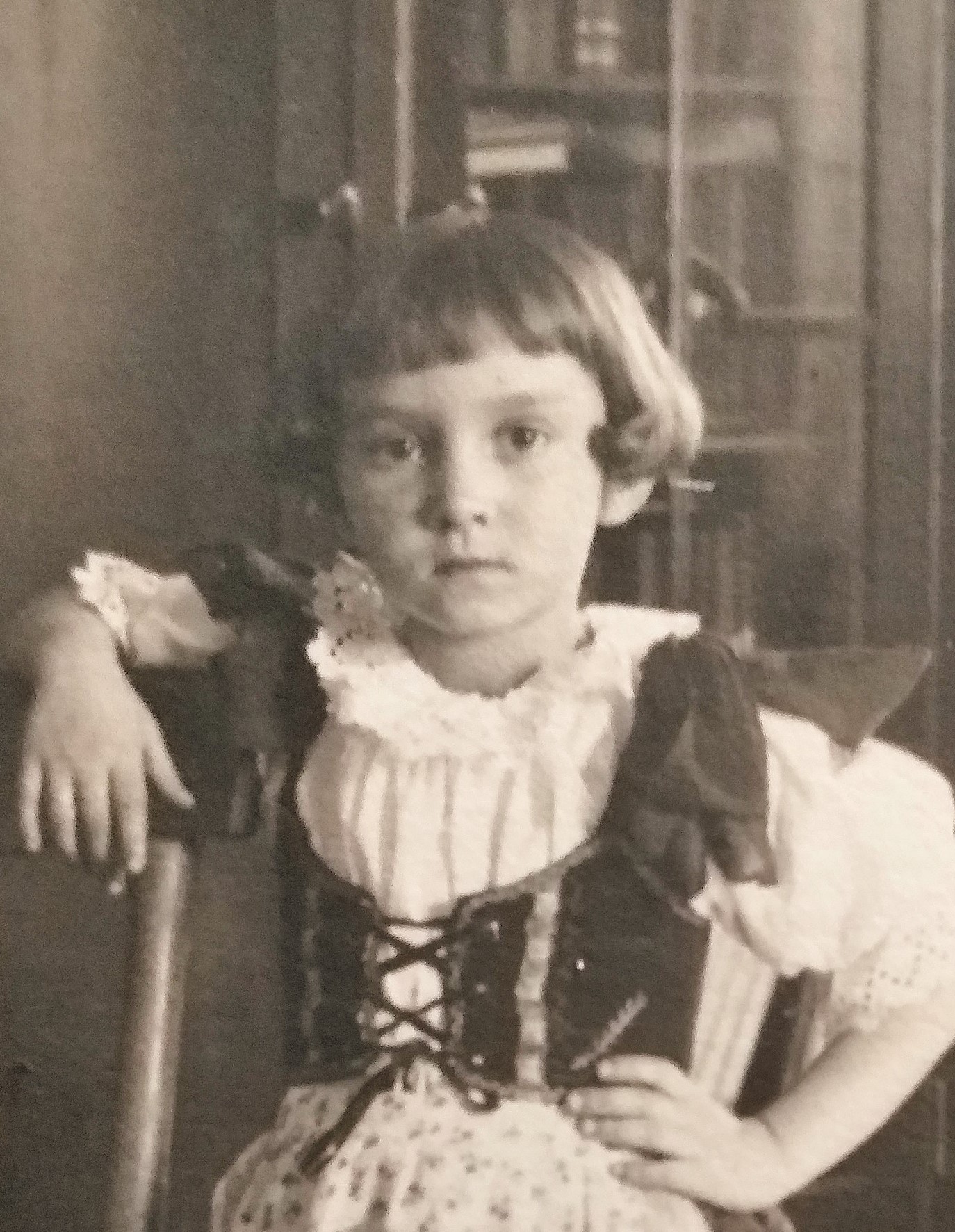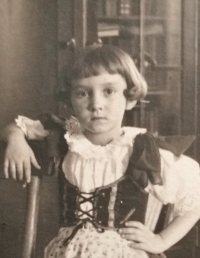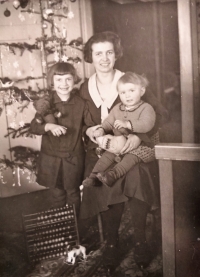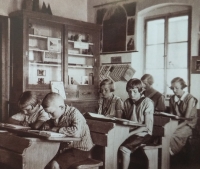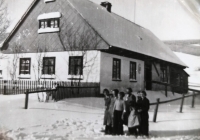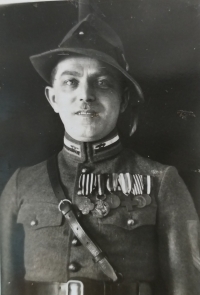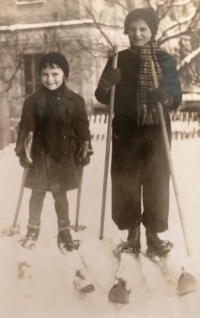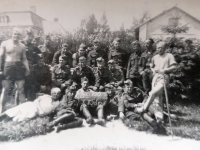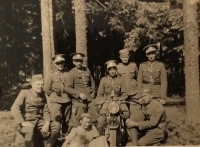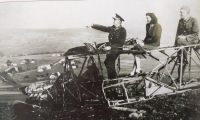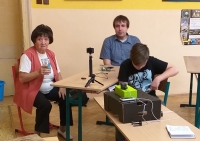"Kunštát was about eight kilometres long and mostly Germans were there and I was actually, at the end, the only Czech. Because the year thirty-eight came, 1938, when Germans had already won the elections here, 48% of the population of Mikulášovice, I read in the chronicle, I may not be saying it quite accurately, voted for Henlein. They even got into parliament and were in a very good position. Of course, they had no idea that when they got back, they still wanted 'Heim ins Reich', which means 'Home to the Reich'. Well, what happened was that first they took away the border area and in Kunštát, where we lived, we even had to flee. I was playing with the butcher's children, the children of a butcher, a German family, at the beginning of September, 1938. I could speak German and it was funny, the German. It was different everywhere, here they used to say 'Komm bisschen hier', which means 'Komme bisschen hier', whoever learns German knows it means 'Come here a little bit'. But in those Orlické Mountains they said everything with the 'la' ending. 'Kommla bissla hiera'. And my mother and I used to walk through Kunštát and giggle at the German language. But those people were awfully nice, they were humble, awfully nice people who worked hard in those fields, they carried manure in their little buckets to the fields because they didn't even have any wagon. They were really poor people, and I know my mother used to say to them, 'Why are you selling those eggs for so little? You can ask for more.‘ Here in Lipová we paid more for an egg than there in the Orlické Mountains. But they were just awfully nice, really modest. But they had no idea when they chose Henlein that the Sudeten Germans would be the first to go to the front. At least that's what I heard. Later on, when the financial guard was abolished during the war, my dad worked in the financial office of the district governor's office in Rychnov nad Kněžnou. Where he got to then, and he knew that it was the Sudeten Germans who got up against the Soviet Union, and they were terribly..., they were being driven almost all the way to Moscow. So they suffered a lot, a lot of them died there, they hadn't known it at the time. Hitler didn´t promise them that they would lose their lives and lose the roof over their heads. Just war is extremely cruel, isn't it."
